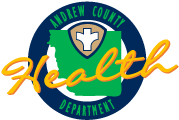Disasters often strike with little warning. Whether it is a severe storm, flood, power outage, or public health emergency, having a plan in place can make a world of difference. Emergency preparedness is not about living in fear. It is about giving yourself and your family the tools and confidence to respond calmly when challenges arise.
At Andrew County Health Department, we work to support our community by providing information, resources, and programs to help families in Savannah and throughout Andrew County prepare for a variety of emergencies. This blog is for educational purposes only and should not be considered legal, medical, or emergency response advice. Every family’s situation is unique, and personal plans should be created in consultation with local emergency management officials and healthcare providers when necessary.
Why Preparedness Matters for Every Family
Many people think emergencies will not happen to them. It is easy to believe that major disasters are rare or that someone else will always be available to help immediately. While first responders, public health teams, and community leaders work hard during emergencies, having a personal plan helps ensure you are ready to act without delay.
Being prepared gives you:
- A clear understanding of what to do if communication lines are down
- Supplies to last several days if stores or services are unavailable
- Confidence to care for family members, including children, seniors, or pets
- Reduced stress when a situation becomes chaotic or confusing
Emergencies in Andrew County often include severe thunderstorms, winter storms, flooding, and public health emergencies. Preparing for the types of events most likely to occur locally helps make your plan stronger and more practical.
Building an Emergency Plan
Creating an emergency plan is one of the most important steps your family can take toward disaster readiness. Your plan should cover the basics of communication, evacuation, and shelter.
Some important elements to include are:
- A designated meeting place outside your home and another location outside your neighborhood
- Emergency contacts, including family members, neighbors, and local services
- A list of responsibilities for each family member, such as who grabs the emergency kit or checks on pets
- Multiple evacuation routes in case roads are blocked
- Plans for caring for young children, elderly family members, or individuals with special needs
- A backup plan if you are separated from loved ones when an emergency happens
Once you create your plan, practice it with your family. Just talking about what you would do can make everyone feel more prepared and ready to respond.
Building a Basic Emergency Supply Kit
An emergency supply kit provides the essentials you need if you have to shelter in place or evacuate quickly. In Andrew County, where storms and power outages are real possibilities, having a kit ready can save valuable time.
A basic kit should include:
- Water: at least one gallon per person per day for several days
- Non-perishable food: canned goods, granola bars, dried fruits
- Manual can opener
- Flashlights and extra batteries
- First aid supplies
- Medications and medical supplies
- Copies of important documents in a waterproof container
- Cell phone chargers and backup power banks
- Personal hygiene items
- Blankets or sleeping bags
- Local maps
- Cash in small bills
Customize your kit based on your family’s needs. If you have infants, include diapers and formula. If you have pets, pack food and leashes. If someone in your household relies on medical devices that need power, have a backup plan ready.
Emergency Preparedness for Families with Children
Children rely on adults to keep them safe, but they also benefit from being included in preparedness discussions in age-appropriate ways. Teaching kids what to do can reduce fear and help them respond more effectively.
Ways to prepare children include:
- Talking openly about possible emergencies in a calm, reassuring way
- Teaching them how and when to dial 911
- Showing them where emergency supplies are kept
- Practicing evacuation drills
- Assigning simple tasks during drills, like grabbing a bag or checking on a pet
Keeping a few familiar toys, games, or books in your emergency kit can also make a stressful situation easier for younger family members.
Planning for Seniors or Individuals with Special Needs
If your household includes older adults, people with mobility challenges, or individuals with medical conditions, it is important to build these needs into your emergency plan.
Be sure to plan for:
- Extra medications and medical supplies
- Mobility aids such as wheelchairs, walkers, or canes
- Transportation options if evacuation is necessary
- Written care instructions in case another caregiver needs to help
- Backup power options for medical devices
Have these conversations early and often so no one is overlooked when time matters most.
Staying Informed During Emergencies
Reliable information is critical during emergencies. Knowing where to turn for updates helps you make smart decisions.
Make sure you are:
- Signing up for local emergency alerts
- Following trusted sources like Andrew County Health Department and Missouri State Emergency Management Agency
- Keeping a battery-powered or hand-crank radio in your emergency kit
- Using trusted news outlets for weather and safety updates
Double-check information you find online. Stick to official sources during emergencies to avoid confusion.
Emergency Preparedness for Health Emergencies
Public health emergencies like disease outbreaks also require planning. Health emergencies can unfold differently than natural disasters but being prepared helps.
Make sure you have:
- An adequate supply of prescription medications
- Masks, hand sanitizer, and disinfectant supplies
- A plan for healthcare access if clinics are disrupted
- Strategies for caring for sick family members safely
We are committed to providing up-to-date information and support during any public health emergencies affecting Andrew County.
How We Support Emergency Preparedness in Andrew County
At Andrew County Health Department, we are proud to help families stay ready through:
- Community education programs
- Public health services during disasters, like vaccination clinics and emergency shelters
- Up-to-date communications before, during, and after emergencies
- Partnerships with local, state, and federal agencies to strengthen response efforts
Emergency preparedness works best when we all work together. Our team is here to connect you to the tools, information, and support you need to protect your family and neighbors.
Final Thoughts
Emergencies can happen anytime. Preparing today gives you the peace of mind to face tomorrow with confidence. Creating a plan, building a kit, staying informed, and talking with your family about what to do are simple but powerful steps toward resilience.
At Andrew County Health Department, we are here to help. For more information about emergency preparedness resources, or to learn more about how to get started, contact us today. Together, we can make Andrew County a safer and stronger place for everyone.




